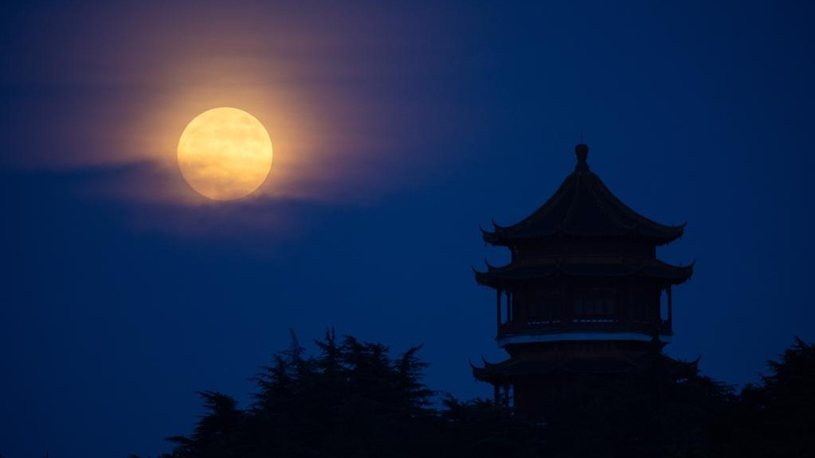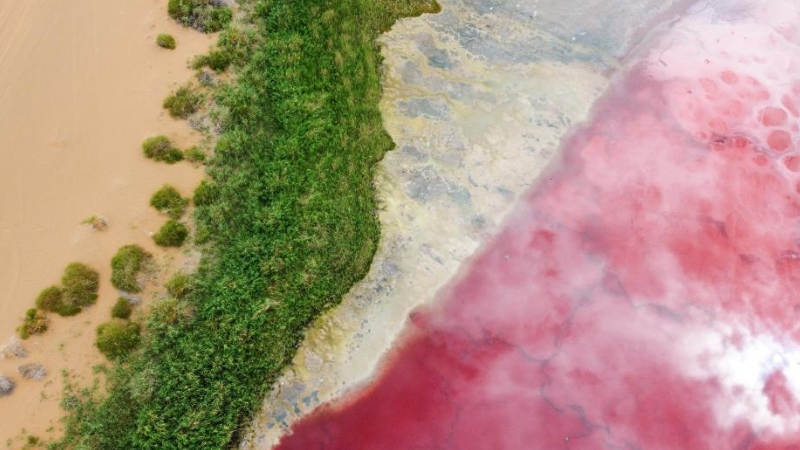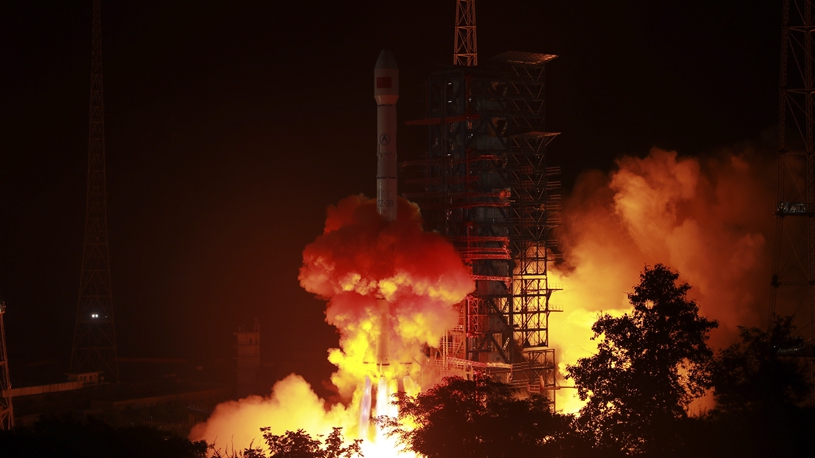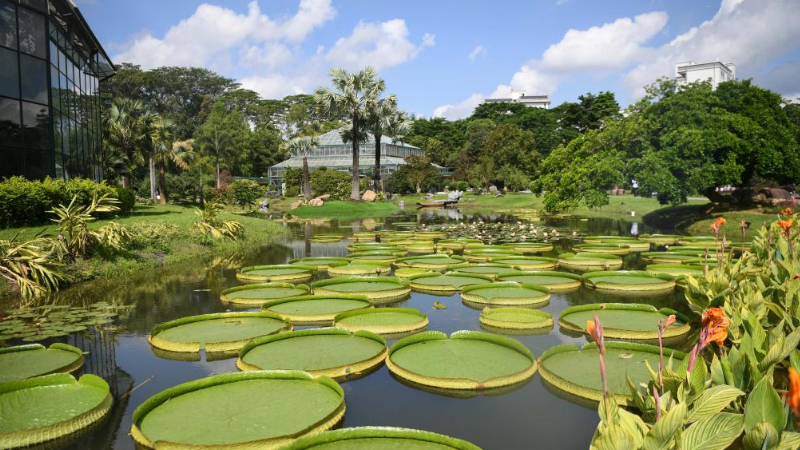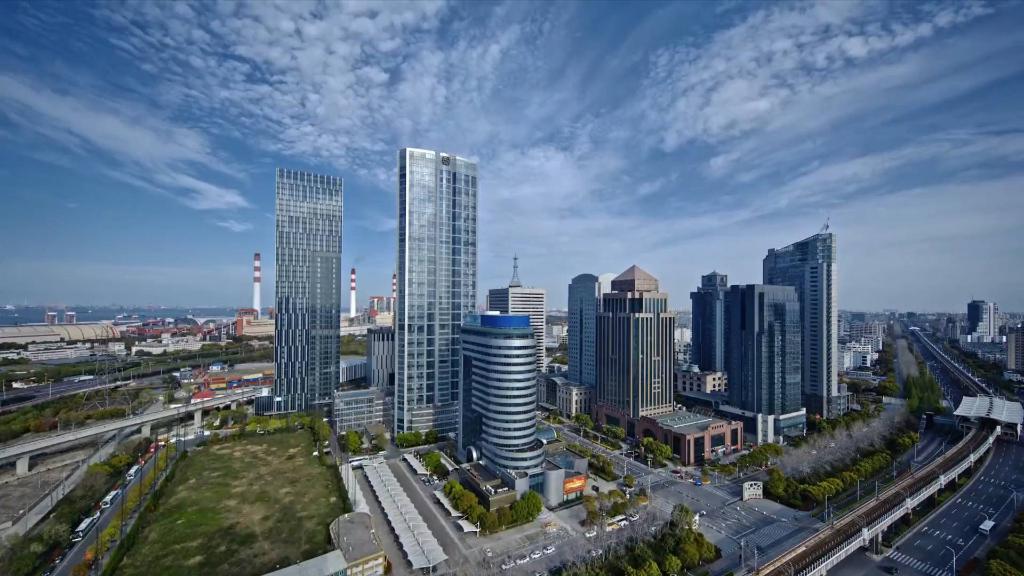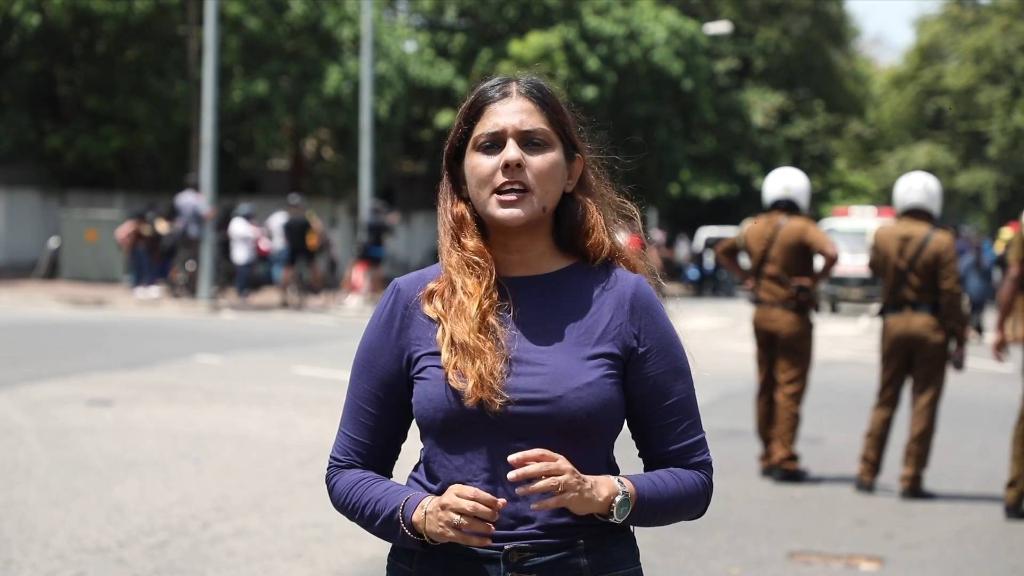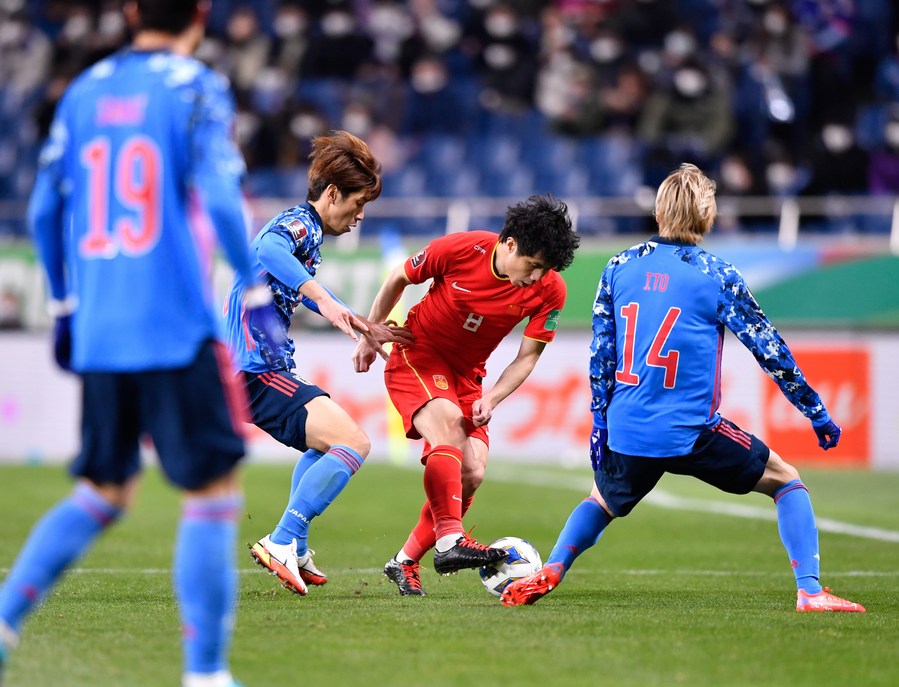
Hao Junmin (2nd R) of China competes during the Group B match between China and Japan in FIFA World Cup Qatar 2022 Qualifier in Saitama, Japan, Jan. 27, 2022. (Xinhua/Zhang Xiaoyu)
Saburo Kawabuchi, the founder of J. League and later a Japan Football Association (JFA) president, said that due to the players' lack of drive and determination, China struggles to make headway in the international arena.
by sportswriter Wang Zijiang and Yang Ting
TOKYO, July 14 (Xinhua) -- Saburo Kawabuchi, whose reform helped Japan become one of the best football teams in Asia, said China failed to show any progress in the international arena due to a lack of motivation and determination among their players.
The 85-year-old Kawabuchi, the founder of J. League and later a Japan Football Association (JFA) president, told Xinhua in a recent interview that the Chinese players are a group of "spoiled rich people" that have no desire to fight for the national team.
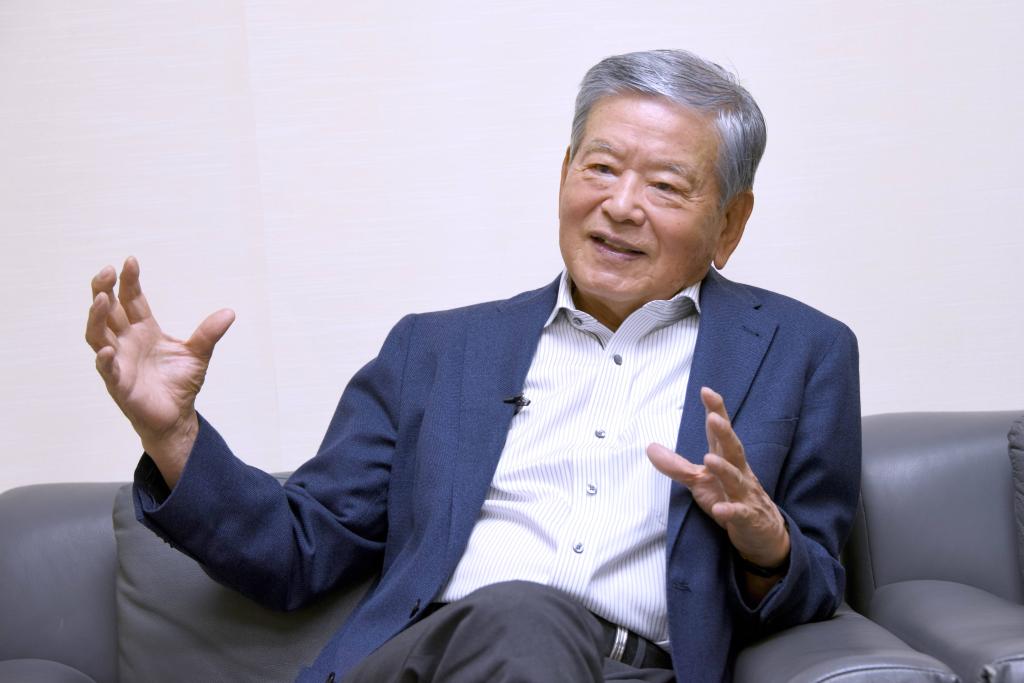
Saburo Kawabuchi, founder of J. League and former Japan Football Association president, receives an interview with Xinhua in Tokyo, Japan, on July 1, 2022. (Xinhua/Gang Ye)
"Chinese Super League players have much more money than those playing at the J. League or the South Korea League," he said. "They are happy with the money earned at home and have lost the desire to play at better foreign clubs. I think they are spoiled."
Kawabuchi started to professionalize Japanese football in the early 1990s and the J. League was finally inaugurated in 1993. One year later, China also launched its own professional league. But 30 years later, the professionalization produced very different results in these two East Asian countries.
Japan, who qualified for their first World Cup finals in 1998, will make their seventh consecutive appearance in Qatar in November while China, who played their only World Cup in 2002, will have to wait for another four years.
China lost both matches to Japan in the World Cup qualifiers by 1-0 last September and 2-0 in January.
"I was shocked with China's performance. How could they become such a weak team? You cannot find a single good player, and they are not playing like a team either. I cannot see any desire from the players to win the match," he said.
"30 years ago, I was invited by the Chinese Football Association to give advice for their professional league. At that time, I said China would become the best team in Asia because China has the biggest population. And most importantly, China had many good players. But now everything has changed."
Kawabuchi said that at club levels, Chinese teams are often divided because players from different provinces or cities cannot get along.
"Takeshi Okada told me about this unhappy experience after returning from the Chinese Super League and complained that it's too difficult to coach a Chinese team."
Okada, now a vice president of JFA and a former Japanese national team manager, was the head coach of Hangzhou Lyucheng from 2011 to 2013.
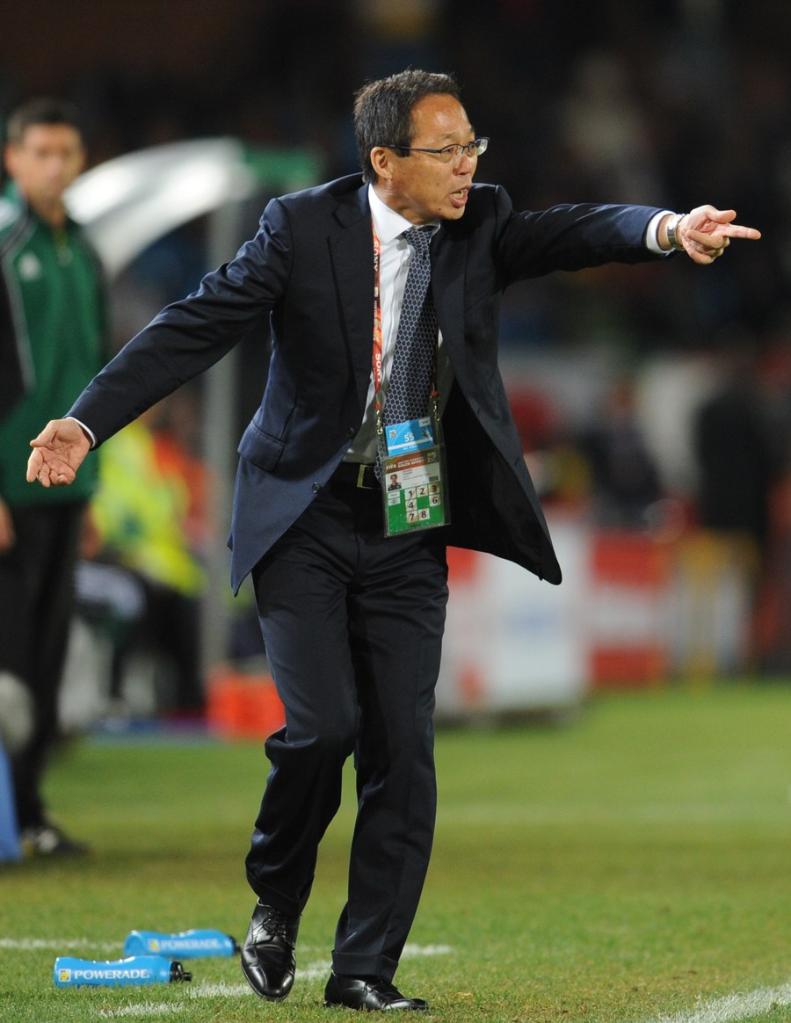
Japan's coach Takeshi Okada reacts during the 2010 World Cup round of 16 soccer match against Paraguay at Loftus Versfeld Stadium in Tshwane, South Africa, on June 29, 2010. Japan lost 3-5 in a penalty shootout. (Xinhua/Li Ga)
Kawabuchi, himself a former national football team player and manager, said Japan should feel "lucky" to be drawn with Spain and Germany in Group E at Qatar.
"We don't have a lot of chances to play these two great teams," he said.
In 2005 when he was the president, JFA issued a declaration announcing that Japan aims to lift the World Cup trophy in 2050. 17 years on, he said it was still a realistic goal.
"There are still about 30 years to go. I believe we can achieve that," he said. "There are about 60 Japanese players in Europe and five first-team players in the top five leagues. If the figure is increased to 20, we will be more confident of beating all the European powers."
Kawabuchi represented Japan at the 1964 Tokyo Olympics and played the 1984 Los Angeles Games as the head coach. In 2019, he was named Mayor of the Tokyo 2020 Olympic Village and nearly became the President of Tokyo 2020 after Yoshiro Mori resigned in early 2021.
"Somebody recommended me to become the president," he said. "But I truly believe that Seiko Hashimoto is the right choice. I think I am very lucky not to be appointed." ■

